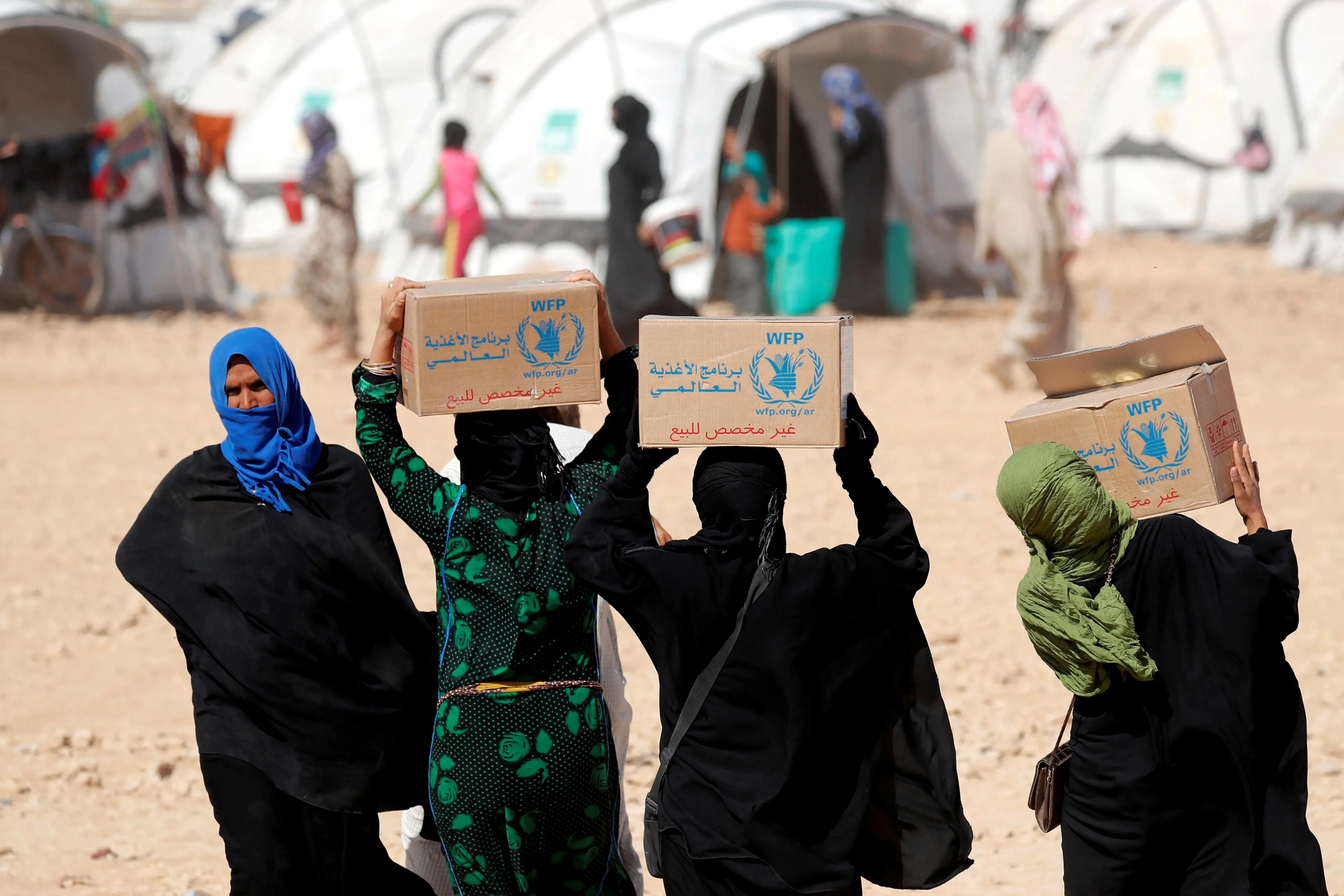PHOTO
The Nobel Peace Prize has had its share of controversy, rewarding leaders whose misdeeds, whether real or perceived, later came under global scrutiny. But this year’s award to the UN World Food Programme (WFP) is a truly inspired decision — recognition not for achievements expected at some point down the road, but for the work of an organisation that has been delivering food to the world’s hungry since it was founded in 1961.
The WFP is affiliated to the UN Food and Agricultural Organization and the UN Development Programme. Unlike fully fledged UN organisations it is not financed by agreed country contributions but rather by donations, demanding considerable fundraising skills from its executive director, David Beasley. As of October the US is the biggest donor, contributing $2.7 billion, followed by Germany with $964 million, according to the WFP website. Saudi Arabia ranks number 10, contributing $140 million.
Even before Donald Trump took office, the US had its difficulties with the UN, its unwieldy bureaucracy and its inefficiencies — but it has never wavered in its support for the WFP; Beasley himself is a former Republican governor of North Carolina, and his nomination for the WFP job was supported by Trump.
Running an organisation that provided assistance to nearly 100 million people in 88 countries last year is not cheap. The logistical challenge is illustrated by the fact than when the world went into pandemic-induced lockdown this year, the WFP temporarily became the world’s largest airline. About 150 million people, threatened by acute hunger, currently need assistance. The WFP estimates that this number could increase to 270 million in 2021 because of COVID-19 and armed conflicts. If help is not forthcoming by 2021, up to 6,000 children a day may die.
These numbers speak volumes, and COVID-19 has made the situation worse for hundreds of millions of poor. When countries such as India went into lockdown, day laborers who need to work to eat and feed their families suddenly faced destitution. And the coronavirus is not the only cause of hunger — look at Syria, Iraq, Afghanistan and large parts of Africa. In Lebanon, too, increasing numbers depend on aid after the explosion in Beirut port at the beginning of August.
The organization has had problems funding important programs, such as the one in South Sudan, and recently Yemen. The pandemic has made the situation worse. Experts estimate that the WFP, which raised $5 billion last year, will need the same again to continue, which means the spotlight the Nobel Peace Prize shines on the organization is all the more welcome.
Why is it so important for the world, and for multilateralism, that the WFP receive the Nobel Peace Prize? The Nobel committee made a solid case: “The world is in danger of experiencing a hunger crisis of inconceivable proportions if the World Food Programme and other food assistance organizations do not receive the financial support they have requested.”
UN Secretary-General Antonio Guterres went further: “The women and men of the WFP brave danger and distance to deliver lifesaving sustenance to those devastated by conflict, to people suffering because of disaster, to children and families uncertain about their next meal.” His words go a long way to explain the nexus between conflict and hunger. However, it is not just conflict that creates hunger; it is also inequality, abject poverty, and climate change. Africa is a prime example of the last — experts say the number of Africans suffering from hunger is projected to double between 2015 and 2030.
We cannot address the big global developmental issues, which the UN Sustainable Development Goals aim to have resolved by 2030, without multilateral cooperation — and let us not forget that ending hunger is number 2 on that list of goals.
Beasley called the Nobel Prize “a call to action,” but it is much more than that; because if we cannot feed the hungry, conflict on a global scale is inevitable, quite apart from the humanitarian disaster that hunger itself represents.
- Cornelia Meyer is a Ph.D.-level economist with 30 years of experience in investment banking and industry. She is chairperson and CEO of business consultancy Meyer Resources. Twitter: @MeyerResources
Copyright: Arab News © 2020 All rights reserved. Provided by SyndiGate Media Inc. (Syndigate.info).





















